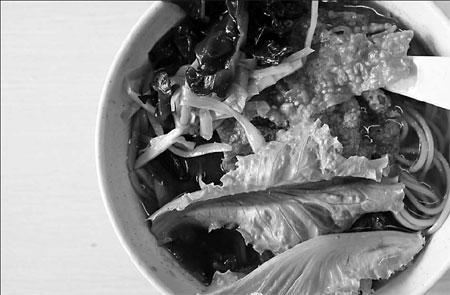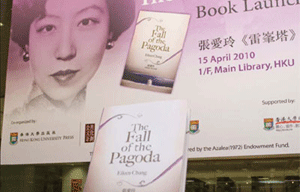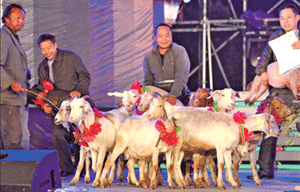Snails in my noodles
Updated: 2011-10-06 08:05
By Yang Yijun (China Daily)
|
|||||||||


There really are snails in the noodles. Lots of them. Yang Yijun tells us more about this delicious specialty from Liuzhou in Guangxi.
Some people frown and cover their noses immediately when the smell hits them, while there are those who will hop into a cab and ride clear across town during the lunch hour just to get their hands on a piping hot bowl.
This is snail noodles or luosifen, a special dish originally from Liuzhou in the GuangxiZhuang autonomous region, but which, however, has gained a huge number of followers in Shanghai.
Different from the escargots on Western menus, these Chinese snails are a lot smaller and give out a strong smell after long hours of boiling.
Fans say it is a unique fragrance, the uninitiated say it is a right royal stink.
The pungency does not get in the way of those who are passionate about luosifen. Snail noodle lovers say it's the same approach to stinky tofu, blue cheese or durian. It all becomes totally delicious once you get past the nose.
"I didn't realize the smell was anything special until I moved to Shanghai. It's all in the air in the city of Liuzhou," says Wei Jun, a Liuzhou native who had settled in Shanghai in 1996.
For him then, there was something missing in Shanghai: He could not find a single luosifen stall.
In 2008, Wei finally decided to start his own snail noodle restaurant in Shanghai. His reasons were simple - it was so people from Guangxi like him could assuage their longing for a bowl of their favorite food,
At his Jiawei Snail Noodle shop, a bowl of snail noodles is priced at just 9 yuan. This very affordable price is still more expensive compared to Liuzhou, where a bowl would cost no more than 3 yuan.
It is a simple bowl of noodles that is nothing fancy.
Rice noodles, fried dried beancurd sticks, pickled bamboo shoots, black fungus, lettuce, peanuts and preserved cowpeas are all you will find in the bowl. No snails.
Wei says it's the most asked question he gets from new customers: Where are the snails?
"Actually, the essence of the snails is in the soup," he explains. Snails and pork ribs are boiled for around three hours until the stock is rich and "smelly" enough to enhance the flavor of the noodles.
The soup is especially delicious with chili oil. And, like most other Chinese noodles, the soup is what makes the bowl of noodle.
Wei has kept the dish authentic, and that's why even the texture of the rice noodles takes getting used to.
Old rice is used to make the noodles so they are chewier and a little harder.
Wei insists on getting every ingredient - noodles, dried beancurd sticks and bamboo shoots - from Guangxi, because he says those available in Shanghai taste different.
The beancurd sticks are deep-fried before being served and they are the most popular toppings.
After being soaked in the soup, they become soft, but with a residual crunch.
In the beginning, Wei's store sold only a few dozen servings daily, to customers who were mainly workers from Guangxi.
But gradually, the reputation of the snail noodles spread and he is now dishing up at least 500 bowls a day.
"I have been waiting for 10 years for an authentic snail noodles restaurant in Shanghai and finally I have found this one," says Wang Jia, a white-collar worker who was born in Liuzhou and now works in Shanghai. He recommended the snail noodles to his colleagues, none of whom comes from Guangxi, and now they would rush across town together in a cab so they can have their bowls of snail noodles for lunch.
The snail noodle restaurants have become a second home for people from Guangxi.
On festivals like Mid-Autumn, the restaurants will even cook hometown specialty dishes for familiar guests, including freshmen from Guangxi studying at the nearby universities.
Jiawei Snail Noodles is at 621- 623, Anyuan Road, Putuo district, Shanghai. To call for reservations or directions, the telephone number is 021-6230-3772.
You can contact the writer atyangyijun@chinadaily.com.cn.
(China Daily 10/06/2011 page9)










